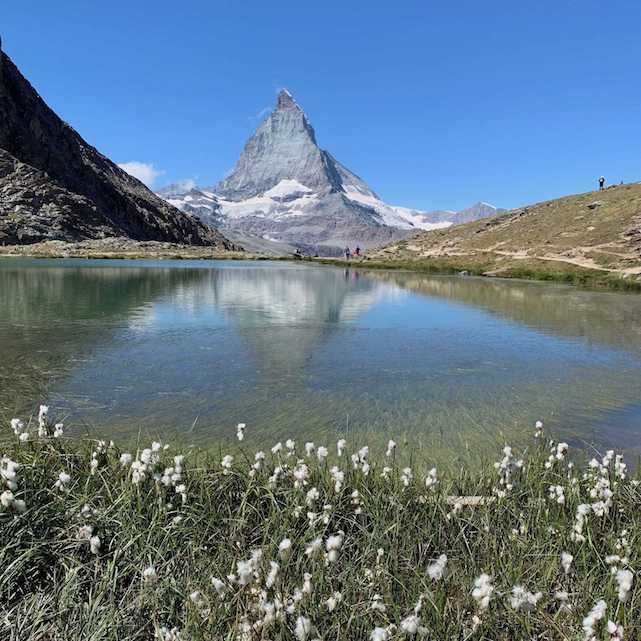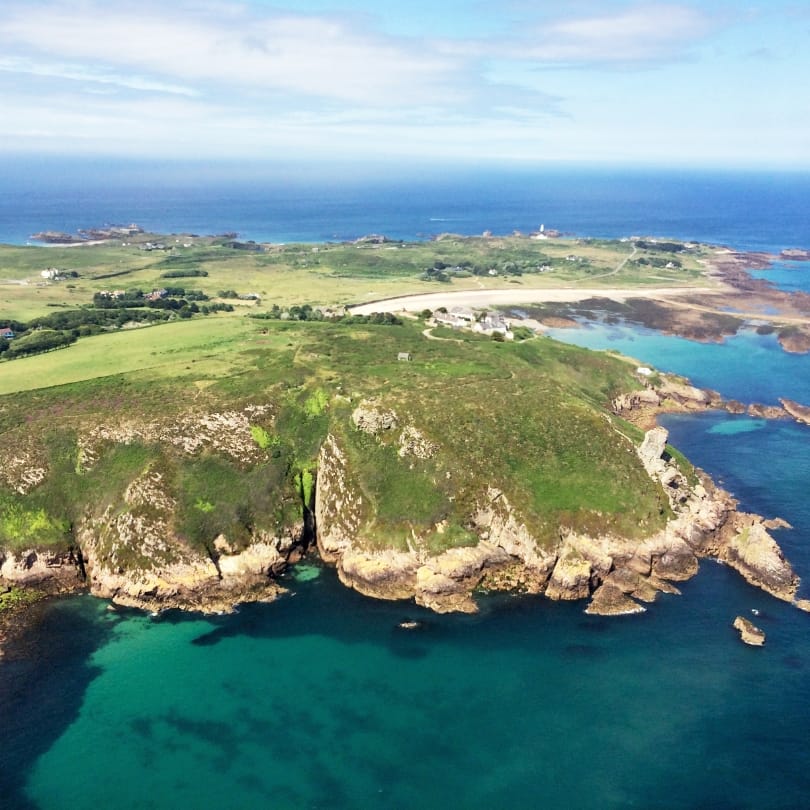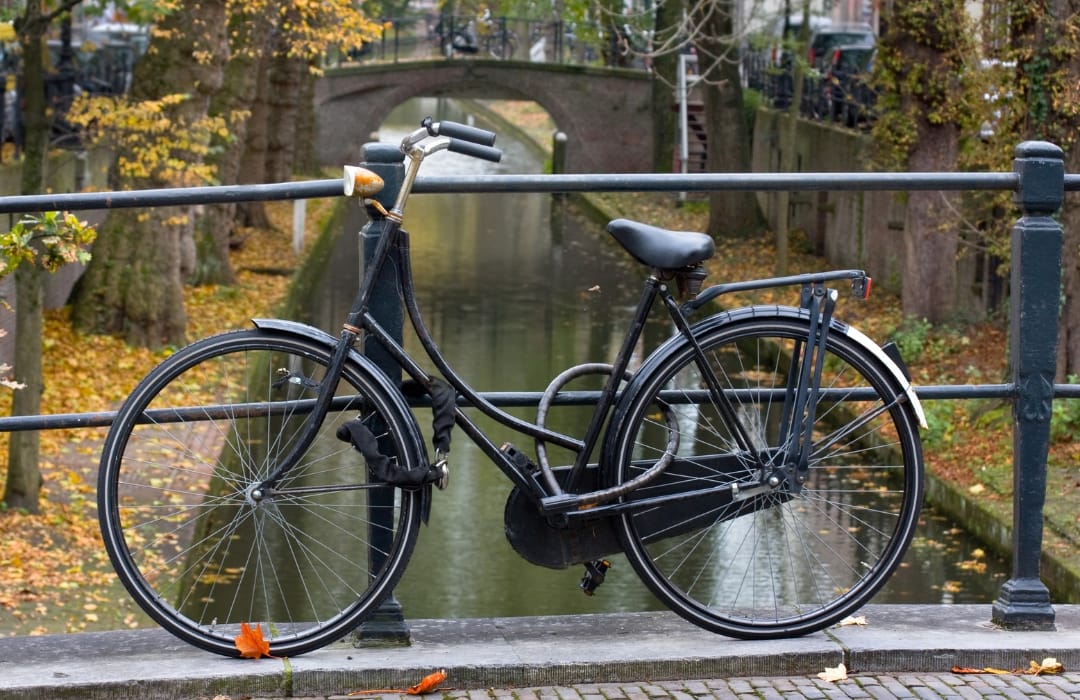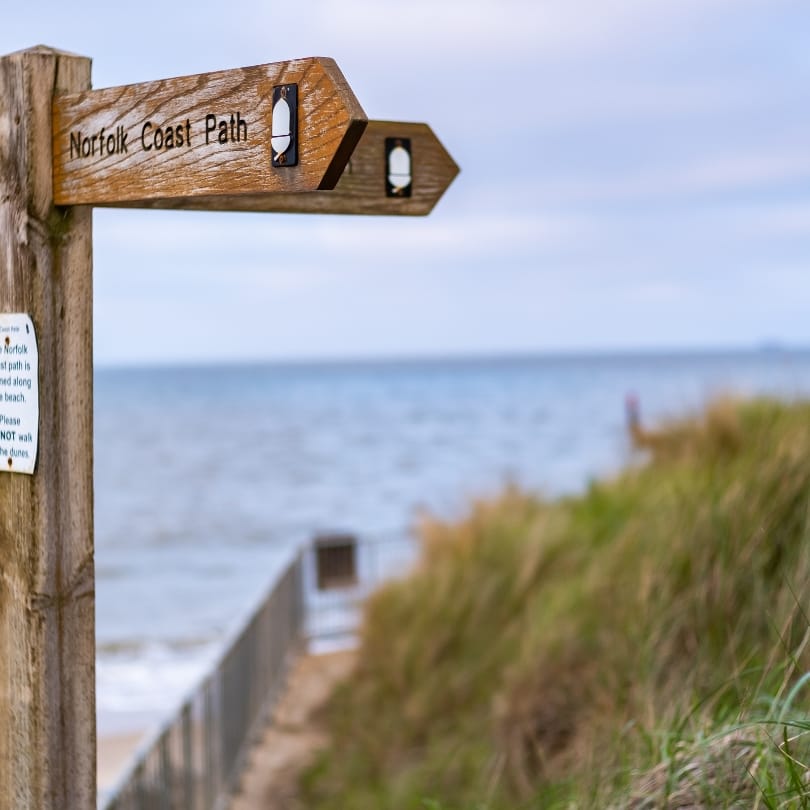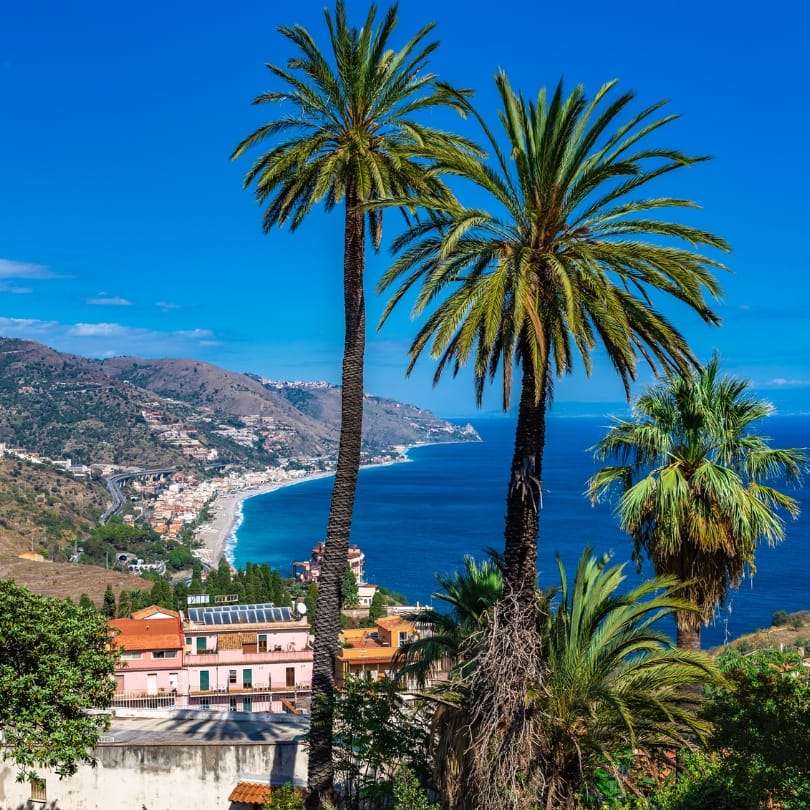The beauty of Scandinavia attracts wilderness enthusiasts and urban dwellers alike.
With snow-scapes, fjords, vibrant cities, cycle-friendly culture, welcoming locals and of course the breathtaking Northern Lights, Scandinavia has huge variety, and it’s accessible overland from the UK in little more than a day.
Here are four accounts of getting to Sweden, Norway, Finland and Denmark flight free.
🇸🇪 Sweden by train
~ Anca Rusu
Since moving to London I have occasionally flown to visit my family who are scattered across Europe. The first and last time I took a plane to Sweden was in 2018 and it felt like a good deal, costing no more than a meal for two at a cheap London eatery. But I’d been aware of the hidden cost of flying for years: the tax avoidance, unjust airport expansions, slow pace of decarbonising, huge carbon footprint, exponential growth of the sector…
And that flight was cheap in every sense of the word – I spent more time waiting in sterile, neon, consumerist waiting rooms than I care to remember, and arrived at my destination after more than 20 hours, exhausted. Flying felt unbearable after this, and reading ‘Being the Change’ by Peter Kalmus cemented my decision to replace even these occasional plane trips with low-carbon alternatives.
I spent more time waiting in sterile, neon, consumerist waiting rooms than I care to remember.
With winter holidays looming, I wanted to spend a couple of weeks with family who live in the small town of Mora, 300km north west of Stockholm. One of the joys of overland travel is being able to explore different places along the way, meaning that the holiday begins before you reach your destination, so I opted for a flexible Interrail Pass to cover the whole journey. By travelling just before the December holiday rush, then returning just after it ended in the second week of January, I avoided crowded trains and stayed in cheap but decent hotels.
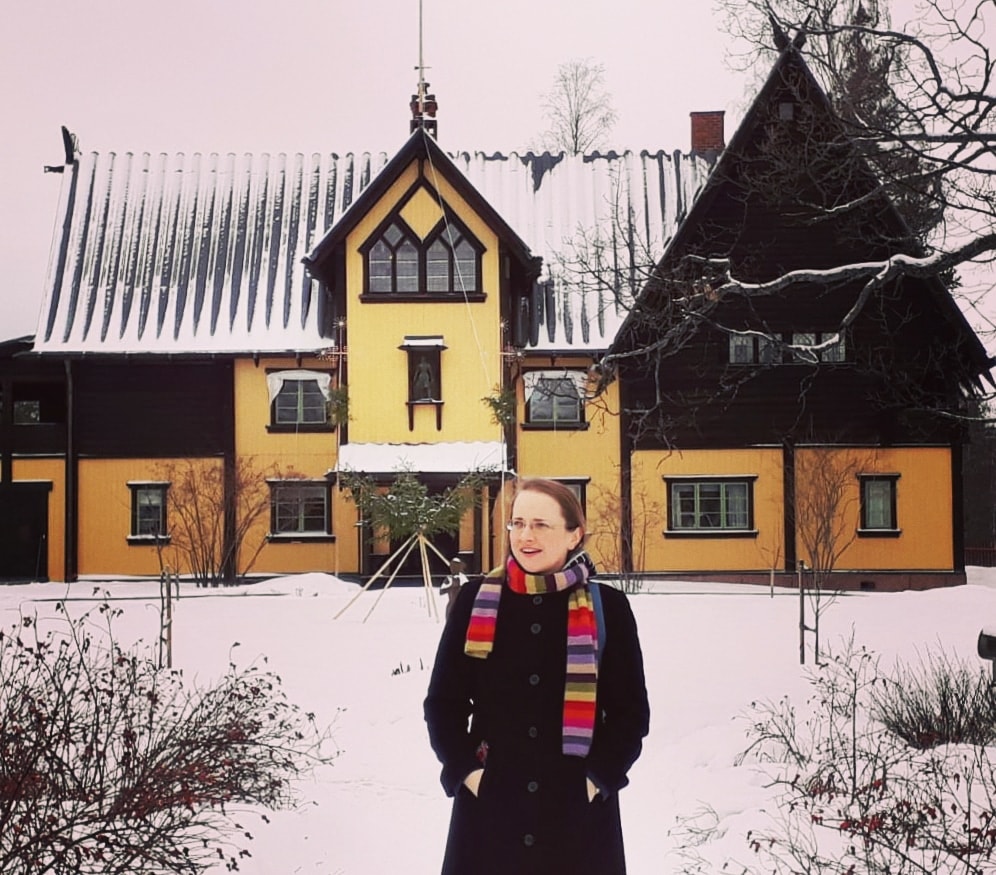
There are loads of different options for this journey, with the platforms Deutsche Bahn, Swedish Rail and The Man in Seat 61 giving all the relevant information. It’s possible to make the whole trip in two days with one overnight stay, but I chose to take two and a half days so I could explore the cities en route. Between London and Mora I changed trains in Brussels, Cologne, Hamburg, Copenhagen and Stockholm, with overnight stays in Hamburg and Stockholm on the outward leg and Copenhagen and Hamburg on the return.
One of the joys of overland travel is being able to explore different places along the way.
Long breaks in between connecting trains meant hot soup and fresh gaufres liégeoises at Brussels Midi, warm pretzels in Cologne, and casual walks around Stockholm Central Station, right at the heart of the city. The massive station buildings make historically impressive pit stops; take Cologne – how often can you stretch your legs by a medieval cathedral? And when I passed through each of them again on the return leg it felt like visiting an old friend.
The highlight of the trip was an extended stop in Hamburg. I got to see this surprising city first during the winter holidays, bustling with Christmas markets on every corner, and then after the New Year, without its holiday clothes on: stern and playful at the same time, caught somewhere between the Industrial Revolution and a shiny future, with modern art displayed in Gothic ruins, and the eye-catching Elbphilharmonie, Hamburg’s new concert hall in the HafenCity, by the river Elbe.
I’m hoping that the proposed Swedish Rail sleeper train could be an option for a future trip, leaving Malmö in the evening and arriving in London late the following morning. But either way I’m hooked – I can’t wait to be on this journey again.
🇳🇴 Norway by ferry and train (and rail replacement bus)
~ Ian and Gilly Charters
When we booked a Hurtigruten sailing trip along the coast of Norway, all the information pointed to us travelling from Yorkshire to Bergen by air. But the Man in Seat 61 said it was possible overland, so we began looking into it. Part of the enjoyment of a holiday is researching schedules and routes and adding in detours and stopovers, although planning well in advance doesn’t necessarily mean things go to plan…
The first hiccup came before we’d even left the house, with our Eurostar from London to Brussels cancelled because of Storm Ciara. Luckily a quick call to P&O got us booked on the ferry from Hull to Rotterdam that evening. The crossing was rather rough but the good cabin and catering made up for it.
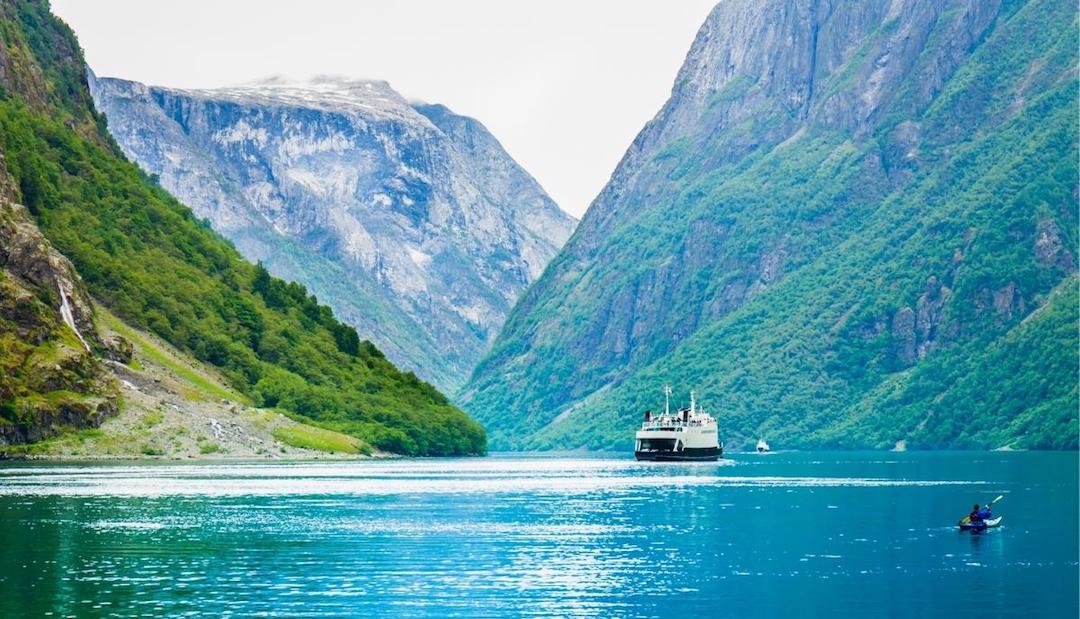
Normally the trip from Rotterdam to Hamburg is quite straightforward but the storm was causing disruption here too. A Deutsche Bahn (DB) rail replacement bus was offered as an alternative to a cancelled train at Eindhoven and we arrived in Hamburg only four hours later than scheduled.
After a good nights’ sleep in one of the many cheap hotels near Hamburg station we set off for Copenhagen – back on our original schedule but with another detour caused by engineering works. A highlight of this section is the Rendsburg High Bridge and loop, where the line crosses the Kiel Canal then spirals down in a 360º loop to the station – an experience resembling a slow helter skelter. Then it was over the various islands of Denmark to Copenhagen, from where we would catch the comfortable and quite luxurious DFDS overnight ferry to Oslo.
Our train from Oslo to Bergen didn’t depart until the following afternoon, which left us time for lunch at Oslo Central station, where we dined in the old train shed, now an interesting-looking food court. It was a seven hour train ride, and is well worth doing in the middle of winter – the snowscapes as the train travels through the mountains are amazing. We were allowed to get off the train for an hour while they repaired a signalling fault further down the line, and stood on the platform on a snow-covered plateau with summer houses almost completely buried in snow. It was yet another delay, but all part of what made it so interesting and unique.
The snowscapes as the train travels through the mountains are amazing.
After three days in colourful Bergen, the time came to board the Hurtigruten ferry – the focus of our holiday. It was here that we became even more glad that we had chosen to travel overland. Another storm, Storm Dennis, had wreaked havoc on airline schedules meaning that a flight from Bristol had been delayed, bumpy, and with baggage soaked during handling. Our fellow travellers therefore had a very unpleasant start to their excursion – and I confess we felt rather smug that we had been having a thoroughly enjoyable journey so far, including having been seeing the sights for several days already.
…we felt rather smug that we had been having a thoroughly enjoyable journey.
On returning to Bergen, 12 days and 2500 miles later, the flight passengers dashed off by coach to the airport having seen nothing of the city. For us, it was another night in Bergen, an overnight Fjord Line ferry to Hirtshals on the northern tip of the Danish coast, a coach transfer inland to Aalborg then a couple of trains to Hamburg where we stayed for the weekend. On the Monday morning we left via Brussels and London and were back in Yorkshire by 10 pm the same day.
It was obviously much more expensive to travel by rail (£800 pp) compared to flying (£200 pp, plus transfers). Of course, it wouldn’t be such a difference if air travel were priced appropriately for the damage it does, and not heavily subsidised. However, if you consider the travel as part of the holiday, an extra week in our case, then it was good value and gave us wonderful experiences and memories.
🇫🇮 Finland by bicycle, train and ferry
~ the Clines family
We’re a car-free family that loves to travel, happiest taking off on our bicycles with camping gear in tow. In 2018 a work conference in Helsinki meant that Finland was on the list. It would be easier to fly, certainly, but after weeks of researching whether it would be possible to travel as a family with all of our bikes and gear by train and ferry, we decided to go for it.
It was certainly the right decision. We all loved it. The journey was an adventure and we got to experience three different countries and how they relate to each other geographically and culturally. We enjoyed camping, swimming, hiking, canoeing, museums, city sightseeing and having lots of time together as a family.
We got to experience three different countries and how they relate to each other geographically and culturally.
After travelling from our home in Sheffield to Hull, we took the overnight ferry crossing from Hull to Europoort. It has plenty of space for bikes and clean and comfortable cabins, and the children loved it.
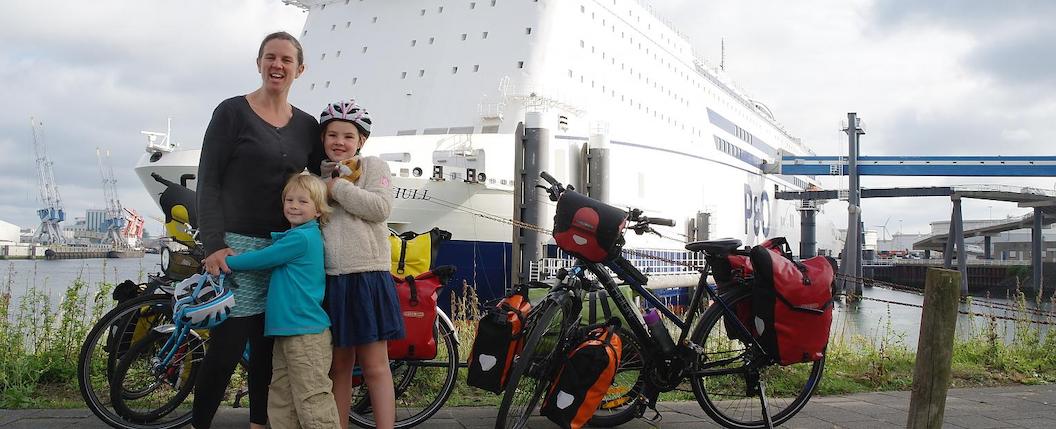
Cycling in the Netherlands is a joy, especially with children, and we reached our first camping spot near Den Haag with little trouble. Less than 24 hours after we left home we had the tent up and the children were swimming and canoeing in a canal about 50 metres from the tent. The holiday had definitely begun.
Cycling in the Netherlands is a joy, especially with children.
Our biggest travel day involved getting us, our bikes, twelve panniers, a 90-litre trailer bag and folding trailer on and off four trains from Den Haag in the Netherlands to Lübeck in Germany. The German trains were incredible: space for 18 bicycles, each with its own numbered slot, which was a delight for a family who often try to squeeze four bikes into the inadequate spaces on British trains. It was quite anxiety-inducing making sure that everything went to plan, but despite a delay and one missed connection we arrived at the campsite just before it closed and managed to put up our tent before it got dark.
After a few days in the beautiful medieval town of Lübeck enjoying the summer heat and the fresh-water swimming spots, we made our way to the port for the ferry that would take us to Helsinki. Cycling onto a huge ferry is always exciting, and we boarded the Finn Maiden in the dark in mandatory hi-viz vests and head torches.
The 30-hour journey seemed to fly by with cabin picnics, games of Uno, and frequent visits to the jacuzzi and sauna – which are ubiquitous in Finland. A highlight was that our crossing coincided with a lunar eclipse, so we wrapped ourselves in blankets and huddled on the sundeck to watch it: a real treat away from the light pollution we are used to.
There are quicker ways to travel to Finland and back, and cheaper ones too, but we’ve no regrets.
There are quicker ways to travel to Finland and back, and cheaper ones too, but we’ve no regrets about our trip. It was a low-carbon journey that had a sense of adventure about it, with plenty of interesting places along the way.
🇩🇰 Denmark by train
~ Anna Hughes
It was my first time in the Channel Tunnel and I tried not to picture the vast amounts of water pushing down from above as we hurtled through the darkness. But soon we emerged into northern France, into hills that roll just as they do in Kent. Commuters held coffee cups on station platforms; the buildings had French-style roofs and French-coloured bricks, but they were buildings, roofs and bricks all the same. This is what you miss out on with air travel – seeing the subtleties, the everyday lives of the people you are passing, understanding how everything is stitched together.
This is what you miss out with air travel – seeing the subtleties, the everyday lives of the people you are passing, understanding how everything is stitched together.
‘Travel gives us so much,’ people say: an understanding of different cultures, knowledge of the world, and a sense of our place in it. Yes, but I would argue air travel doesn’t give us that. My understanding of different cultures and knowledge of the world came from overhearing the conversations of my fellow passengers in languages that slowly morphed through French, German, Dutch and Danish. It came from buying a coffee in our first interchange, Brussels, or walking around the centre of Hamburg, or stepping outside Cologne Hauptbahnhof and gazing up at the medieval cathedral right on its doorstep. It came from learning how each country connects to the last, and appreciating the size of it all. A flight would have taken a matter of hours; travelling to Copenhagen by train took a day and a bit with an overnight stop in Brussels on the way out and Hamburg on the return. But travel shouldn’t be about getting there as quickly as possible, it should be about experiencing and learning and making memories.
Travel shouldn’t be about getting there as quickly as possible, it should be about experiencing and learning and making memories.
I’d gone to Copenhagen to run the marathon – an excuse to spend a weekend in a new city. It was a great (though strenuous!) way to explore, with a double loop of the city’s parks, dock-side walkways and architecture. The day before the marathon had been a chance to be a regular tourist, visiting the Little Mermaid and Nyhavn, the famous water-front strip of bars and restaurants, where a cluster of boats jostled for position on the dock. I remembered the Little Mermaid and Tivoli Gardens from a childhood visit, when we’d travelled from the UK by the now-discontinued ferry. Perhaps now that more people are moving away from flying, UK-Scandinavia ferries might be reinstated.
Sitting still for a day and a half on the return journey was not quite what my legs needed after running 26.2 miles, but I could get up and wander down the lovely long train whenever I liked, and go and buy food whenever I needed, which was a lot. And when the train rolled on to the Rødby-Puttgarden ferry, there was ample opportunity to stretch my legs, breathe fresh sea air and continue to replenish the calories.
This part was definitely a highlight – the boarding of the train onto a ferry, something that used to be quite common in the days before the Channel Tunnel and cheap air travel. I would have been one of the last passengers on this unique travel experience: the train now takes the longer but more efficient route overland via Flensburg on the German/Danish border.
I haven’t flown for more than a decade so when deciding how to travel to Copenhagen, taking a plane wasn’t ever an option. I find that helps – I have no idea of the cost comparison, or the time comparison, because it makes no odds – I don’t fly, and that’s that.
